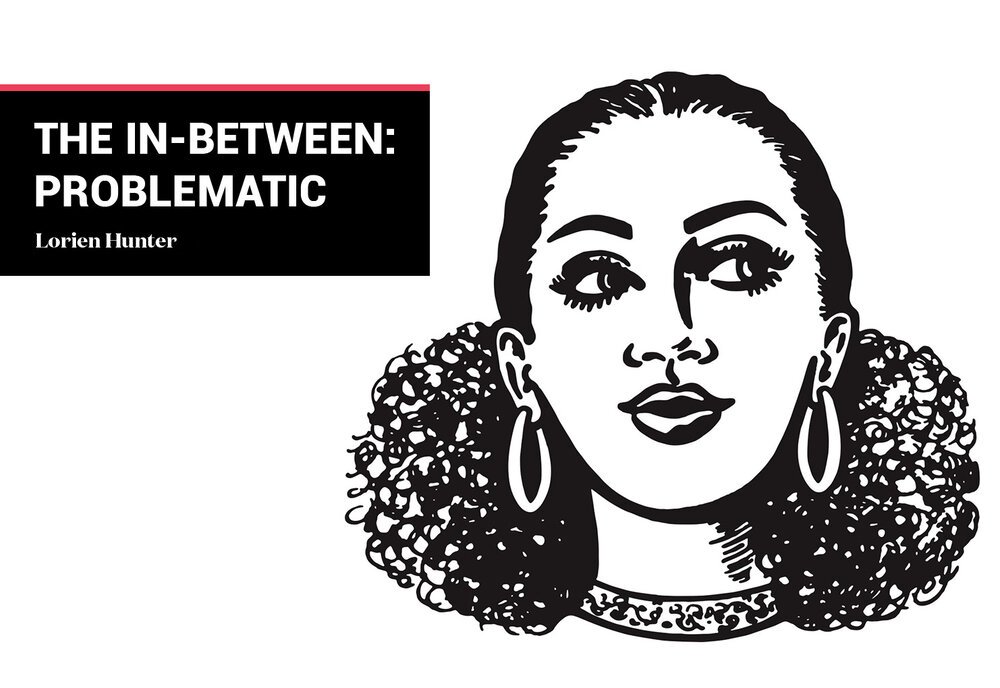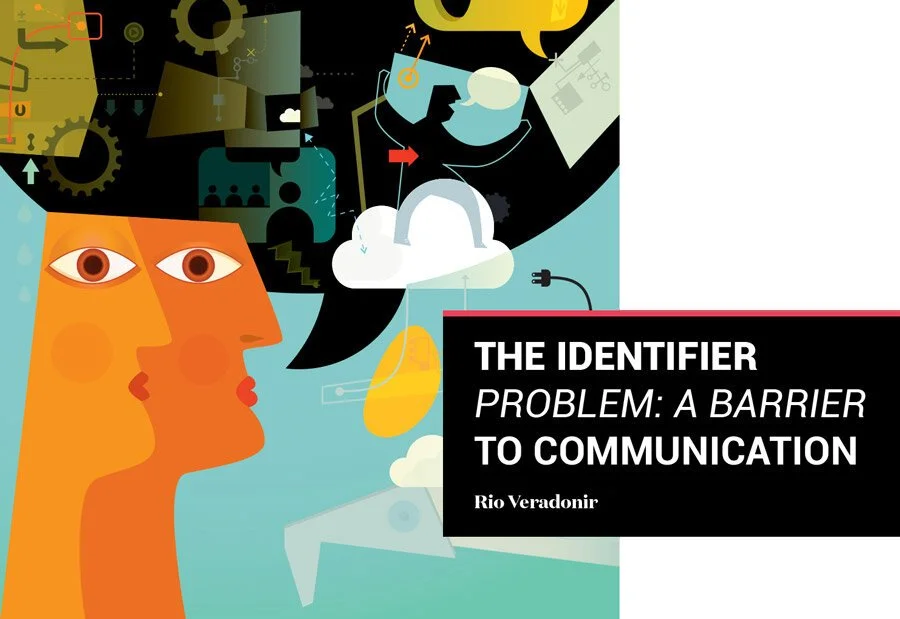A Slut’s Reclamation
For a year straight, I wore a necklace around my neck that read “slut” until the chain became so rusted that it one day snapped, leaving the pendant shattered. During that year, not a day went by without someone commenting on it. On one occasion, I had a man stop me, look me dead in my eyes, and slowly say “slut” before pointing down at my necklace. On another occasion, after serving me a few drinks, a bartender and I bonded over my necklace, which ultimately led to other types of bonding after she finished her shift…
Although these were two very different responses to my necklace, most peoples’ initial reaction seemed in some way tied to the fact that I was embracing the word “slut” as a man, which hints at the very double standard surrounding men’s versus women’s sexuality that prompted my decision to wear the chain in the first place. Although it may not be particularly common for a man to (proudly) identify as a slut, I did and continue to do so intentionally because I want to be part of the word’s reclamation.
According to the Oxford English Dictionary (OED), the word “slut” likely derives from the German schlutt meaning “slovenly woman", and/or the dialectal Swedish slata, meaning "idle woman", and/or Dutch slodde "slut" and slodder "a careless man”. Ironically, the dictionary asserts that the word’s earliest usage was by Geoffrey Chaucer in The Canterbury Tales (c. 1400), in reference to a man (he wrote, “Why is thy lord so sluttish…”). However, for most of its history, the word has been used primarily in conjunction with women and, more recently, in an effort to shame them, control their behavior, and/or justify sexual assaults committed against them.
Evidence of the gendered association between women and the word slut can be found as early as 1402 in the OED’s first definition, which describes a slut as “A woman of dirty, slovenly, or untidy habits or appearance; a foul slattern”. It should be noted that this definition was devoid of any sexual connotations. Three and a half centuries later, when Samuel Johnson first published his influential English dictionary, he continued to define a slut as “a dirty woman”, although he also noted that the word had a somewhat negative implication and was typically used “Of slight contempt to a woman.”
It wasn’t until 1966 that we began to see the modern definition of the word slut be described as a "Woman who enjoys sex in a degree considered shamefully excessive". Since then, the word has been used almost exclusively in this manner. Typically, women have been labeled sluts in an effort to control and/or limit their sexual behavior by shaming them into acting in a more socially accepted manner. This is especially true for women in the United States, where we often forget that Puritans (who were an extremely patriarchal society) were some of the first Europeans to settle the land. Although the seventeenth century is long past, the Puritans’ values still strongly affect our social mores today. So, even now, when women use the word "slut" to disparage other women, they continue to reference these old puritanical and patriarchal systems through which men sought to control women’s bodies and actions in a more direct and literal way.
Around the turn of the new millennium, women (especially in the West) have begun to reclaim the word slut for themselves. The emergence of Samantha’s character in Sex and the City (1998-2004) is an early example of this, because Samantha really was that girl (i.e. an autonomous woman who unashamedly embraced her sexuality), unafraid to be “slutty”, which is partly why her character has become so iconic. More recently, this shift has also become visible in other, more political spaces, perhaps best illustrated by the emergence of SlutWalk in 2011, which began as a small protest march in Toronto, but has since grown into an international movement calling for an end to rape culture and slut-shaming.
All of this begs the question: why (re)claim the word slut, and as a man, is it my place to do so?
First and foremost, as stated above, I choose to identify as a slut because it exposes the double standard of promiscuity associated with men and women, and in doing so, hopefully works to dismantle it. As a man, I am able to mobilize the power of my position to force a positive shift in the way the term is applied and understood in conjunction with all people. In this sense, I use the word “slut” in solidarity with women, fully aware that it has not been historically used to hurt me or other men, but that as a man, I can still use my voice and position to make a difference in its use going forward.
To illustrate this point, consider that I have, thus far in my life, probably slept with 800 or so people, at least 100 of whom were connections I made while attending various sex parties. When I went to “Meat Market”, for example, which is a monthly party at Club Church in Amsterdam, I must have had sex with at least ten different guys throughout the course of the event. Then, later that evening, I decided to make a stop in the red light district (because, when in Amsterdam, why not?), where I had sex with one of the most beautiful Eastern European women I have ever seen.
Because I am a man, most who see this number and read these stories are likely to think of me in a positive light, perhaps even labeling me a player or a pimp. However, if a woman were to say the same thing she would not only be judged for it, but also be assumed to have something psychologically “wrong” with her. Take Stormy Daniels, for example, who has recently been criticized and discredited on the basis of little more than her past careers as a stripper and porn actress.
By identifying as a slut, I raise the question of why a man who unashamedly embraces his sexuality is celebrated rather than considered deviant or wrong, while a woman’s sexuality isn’t celebrated the same way. Why do we have certain words to shame a woman’s behavior, when the equivalent words ascribed to men for the same actions are all celebratory? People who exclusively slut-shame women will be forced to confront the hypocrisy of their thoughts, or, at least, that is my hope. I want everyone to realize that maybe the women society typically judges for their sexuality aren’t “damaged” or “dirty” but rather, are merely women with a high sex drive who are taking advantage of the one life they’ve been given — just like this guy right here!
My second reason for reclaiming the word slut rather than rejecting it or pushing it away is less political and more practical: it lets people know where I stand when it comes to dating.
When I wore my slut necklace, I never took it off, even for first dates. At some point during that first encounter, my date would thus inevitably ask me about my necklace, which gave me an opportunity to let them know exactly who I was. It was something I wanted them to see, as it gave them an idea of my past exploits and what I wanted my sexual behavior to be like going forward (at least, at this point in my life). It let them know that if they wanted to date someone who had only slept with a few people, I was not their man, and they should jump ship now. It let them know that I am a sex-positive free spirit who loves to explore his sexuality with various partners, and that I want my next serious partner to share similar sexual desires.
That is why, to this day, I proudly identify as a slut — both to let people know who I am, and to repurpose the word by giving it an empowering meaning for all. To me, being a slut simply means I have embraced a sexual component of my identity, which is something we should all strive to achieve, regardless of how many people we have slept with. To me, being a slut also means not letting others’ judgements alter my behavior. Because at the end of the day, I don’t think anyone should be judged for their sexuality.
Published Oct 17, 2019
Updated Jun 2, 2023
Published in Issue III: Language








